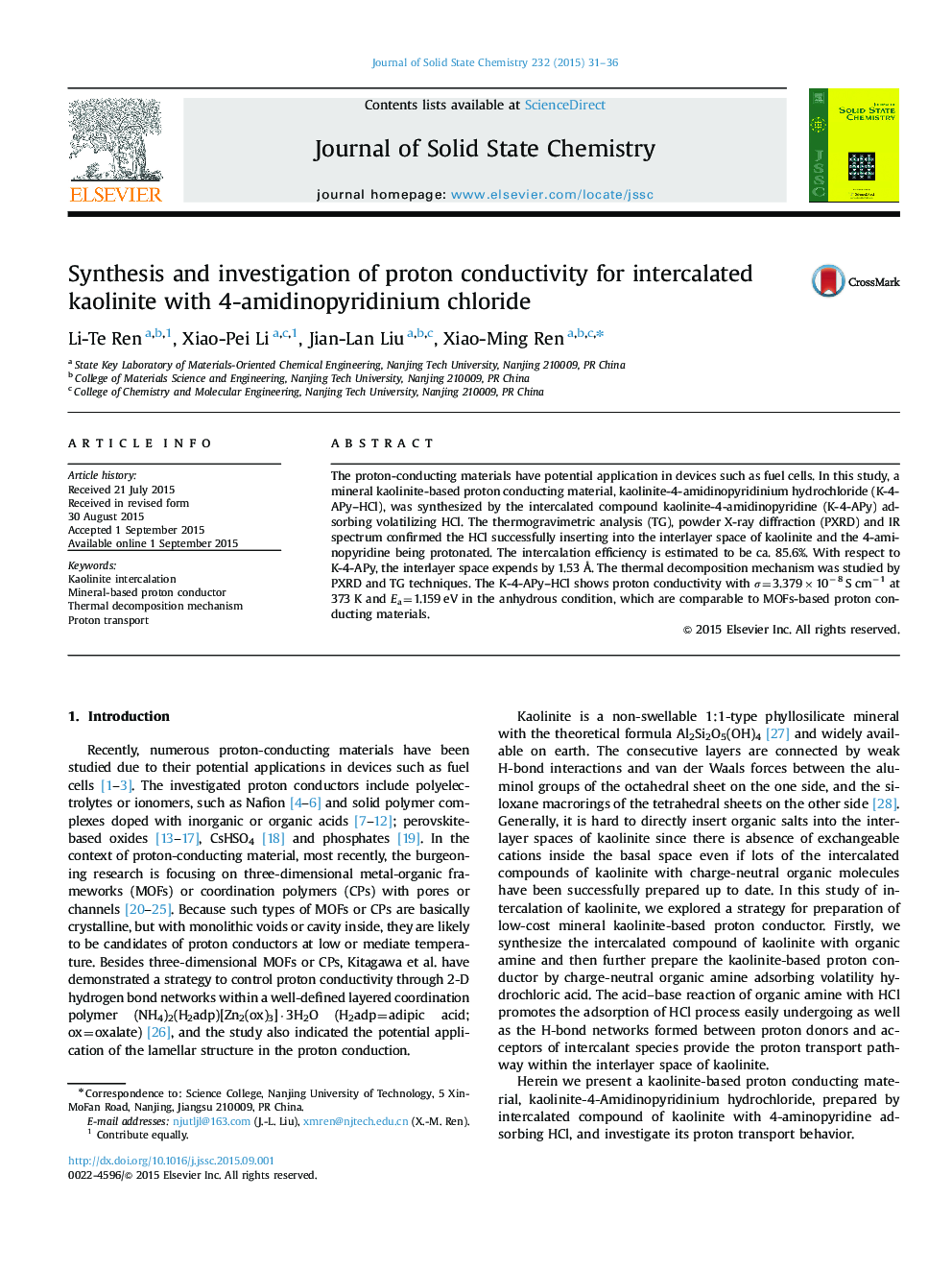| Article ID | Journal | Published Year | Pages | File Type |
|---|---|---|---|---|
| 1329430 | Journal of Solid State Chemistry | 2015 | 6 Pages |
•A new strategy is proposed for preparation of kaolinite-based proton conductor.•Intercalatied hybrid was prepared by sequentially inserting 4-amidinopyridine and adsorbing HCl.•The proton conductivity of intercalated hybrid is comparable to MOFs-based proton-conductors.
The proton-conducting materials have potential application in devices such as fuel cells. In this study, a mineral kaolinite-based proton conducting material, kaolinite-4-amidinopyridinium hydrochloride (K-4-APy–HCl), was synthesized by the intercalated compound kaolinite-4-amidinopyridine (K-4-APy) adsorbing volatilizing HCl. The thermogravimetric analysis (TG), powder X-ray diffraction (PXRD) and IR spectrum confirmed the HCl successfully inserting into the interlayer space of kaolinite and the 4-aminopyridine being protonated. The intercalation efficiency is estimated to be ca. 85.6%. With respect to K-4-APy, the interlayer space expends by 1.53 Å. The thermal decomposition mechanism was studied by PXRD and TG techniques. The K-4-APy–HCl shows proton conductivity with σ=3.379×10−8 S cm−1 at 373 K and Ea=1.159 eV in the anhydrous condition, which are comparable to MOFs-based proton conducting materials.
Graphical abstractThe intercalated hybrid of mineral kaolinite with 4-amidinopyridinium hydrochloride is prepared to use as proton conducting material.Figure optionsDownload full-size imageDownload as PowerPoint slide
